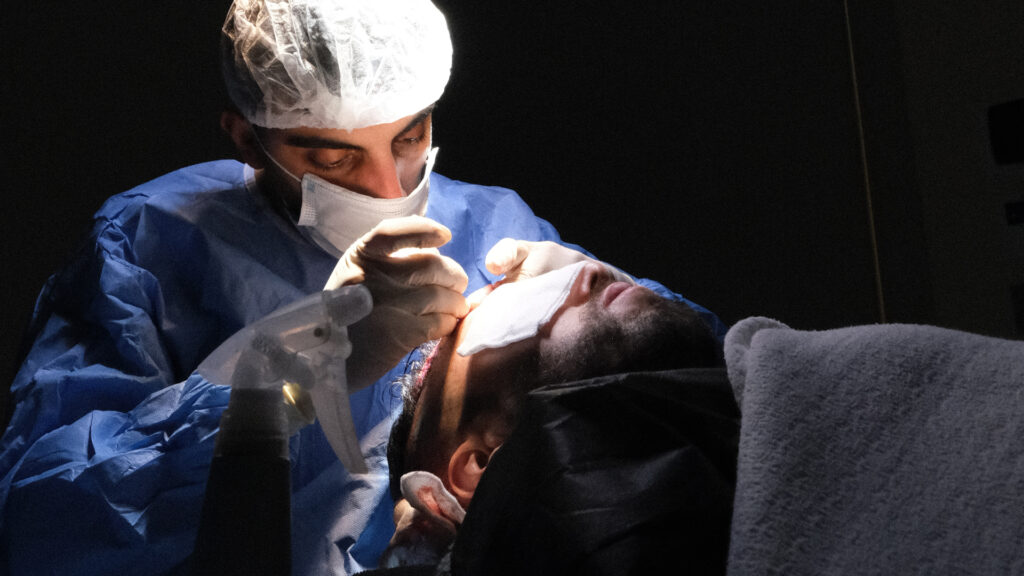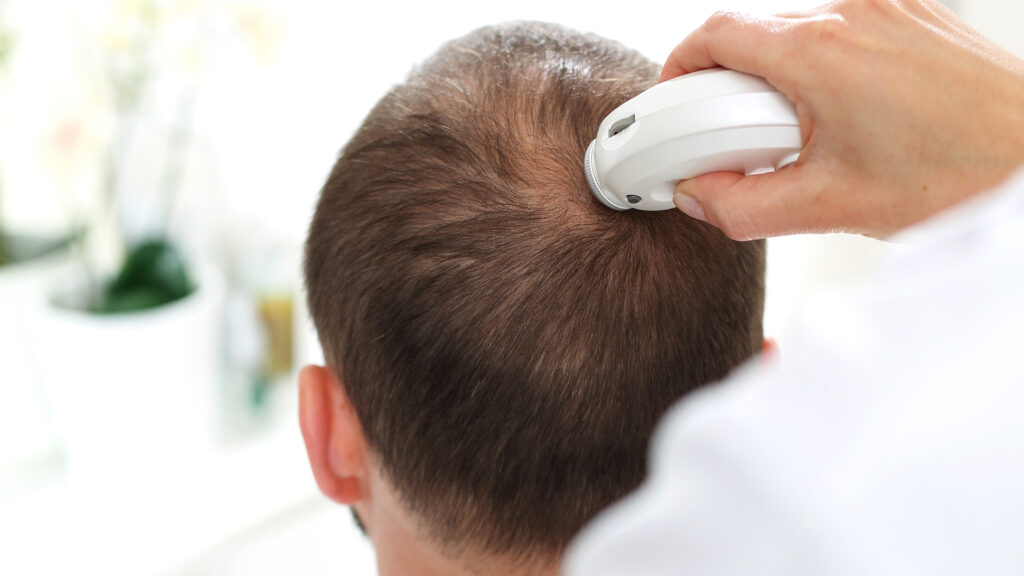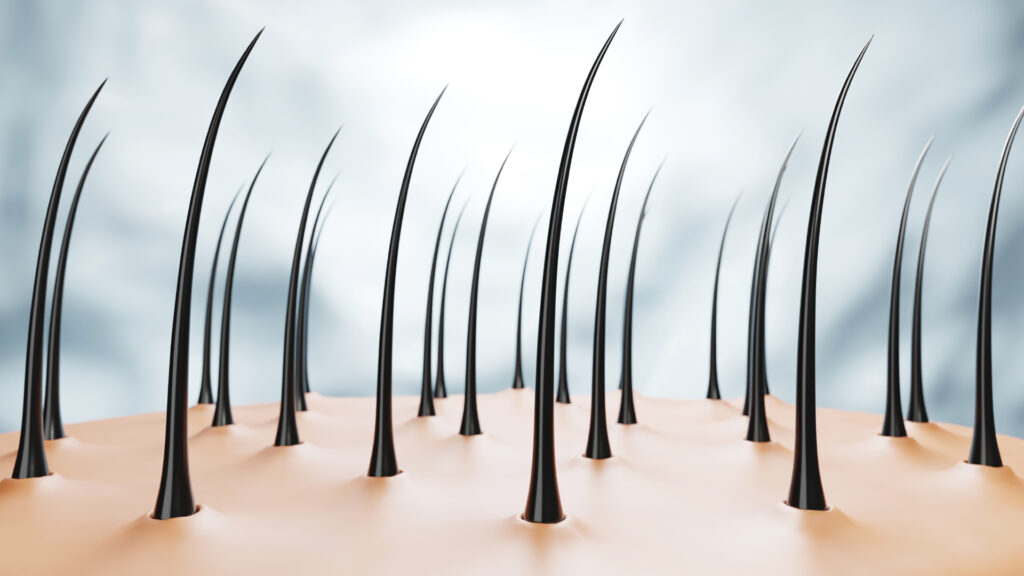After a hair transplant, a hair phenomenon called “Shock Loss” occurs, about three months post-operation: the newly implanted hair suddenly falls out, before growing back. Don’t worry: your hair will be back. Shock Loss is a normal process in the evolution of a hair transplant, for men and women.

My hair falls out after my hair transplant, is this normal?
After a hair transplant operation, it is common for many patients to experience sudden hair loss. This is a temporary condition, usually occurring within 2-3 months after the operation, due primarily to the trauma endured by the follicles implanted during the hair surgery. During the operation, the follicular units removed remain outside for 1 to 3 hours and weaken. The newly formed fuzz, after the grafts have healed, falls off, but the roots remain well implanted under the skin. It will take around three weeks for the new, definitive hair, to bloom and grow progressively. Until they reach full maturity, between 8 and 12 months.

What is Shock Loss?
Shock loss defines a sudden loss of hair after a hair transplant. It can occur in the donor area, generally behind the skull, where the surgeon has taken the grafts, or in the recipient area, where the extracted follicles have been implanted.
In the donor area, Shock Loss is caused by the detachment of the blood capillaries that connect the follicular units when they are harvested. This micro-tear can create a shock to the surrounding hair, resulting in reactive hair loss. This effect can be multiplied if there is a previous scar close by, or if the surgeon cuts a vascular bundle during the operation. In this case, the shock loss occurs during the three weeks after the operation.
In the recipient area, shock loss can be a reaction of the existing hair during the implantation of the grafts. This is particularly the case with women who suffer from diffuse baldness: the implanted grafts can disturb these small neighboring hairs, which can fall out before growing back. Also, the surgical intervention can create a vascular disturbance which, in the following three weeks, will lead to an insufficient oxygen supply to the area. The regrowth will then return to its normal rhythm during the third month of recovery.

How can I reduce shock loss and ensure healthy regrowth?
The FUE hair graft technique, considered the most advanced and safest, reduces the risk of shock loss : the procedure is faster and the follicle remains outside for a very short time, whether it is done with a DHI micropunch or manually. However, if the surgeon removes too many follicles, or does not distribute the extraction area properly, he or she may risk postoperative shock loss.

Combined with these two techniques, the complementary choice of a PRP (Platelet Rich Plasma) treatment, which helps reinforce the implantation of new follicles, increases the success of a hair transplant. It is systematically integrated in the FUE hair transplant packages offered by Body Expert.

Strictly following the postoperative recommendations provided by your surgeon is imperative, to ensure good regrowth after a hair transplant, as well as his instructions in case of shock loss. In particular, it is essential to avoid alcohol and tobacco several weeks before and after the operation, so as not to hinder the proper oxygenation of the new grafts and the scalp. The surgeon’s instructions regarding skull hygiene and proper healing of the grafts must be followed to prevent the appearance of postoperative edema, which can hinder the proper vascularization of the scalp and generally precedes the shock-loss.

Can the hair grow back faster?
There is no miracle for faster hair growth. Some doctors prescribe Minoxidil, which they consider to be effective in mitigating the effect of shock loss (its vasodilatory nature supplies the follicular units with oxygen and nutrients essential for growth) and in extending the life of the hair. Good hair growth is a reflection of a well-being body and mind. Above all, a healthy diet, a stress-free lifestyle, and hair products made from natural ingredients are the best allies for a successful hair transplant. And be patient: you will have to wait between 10 and 12 months before enjoying your new natural hair, strong and well reconstituted.

35050 vues
0 commentaires
0






Il n'y a pas de commentaires pour le moment.